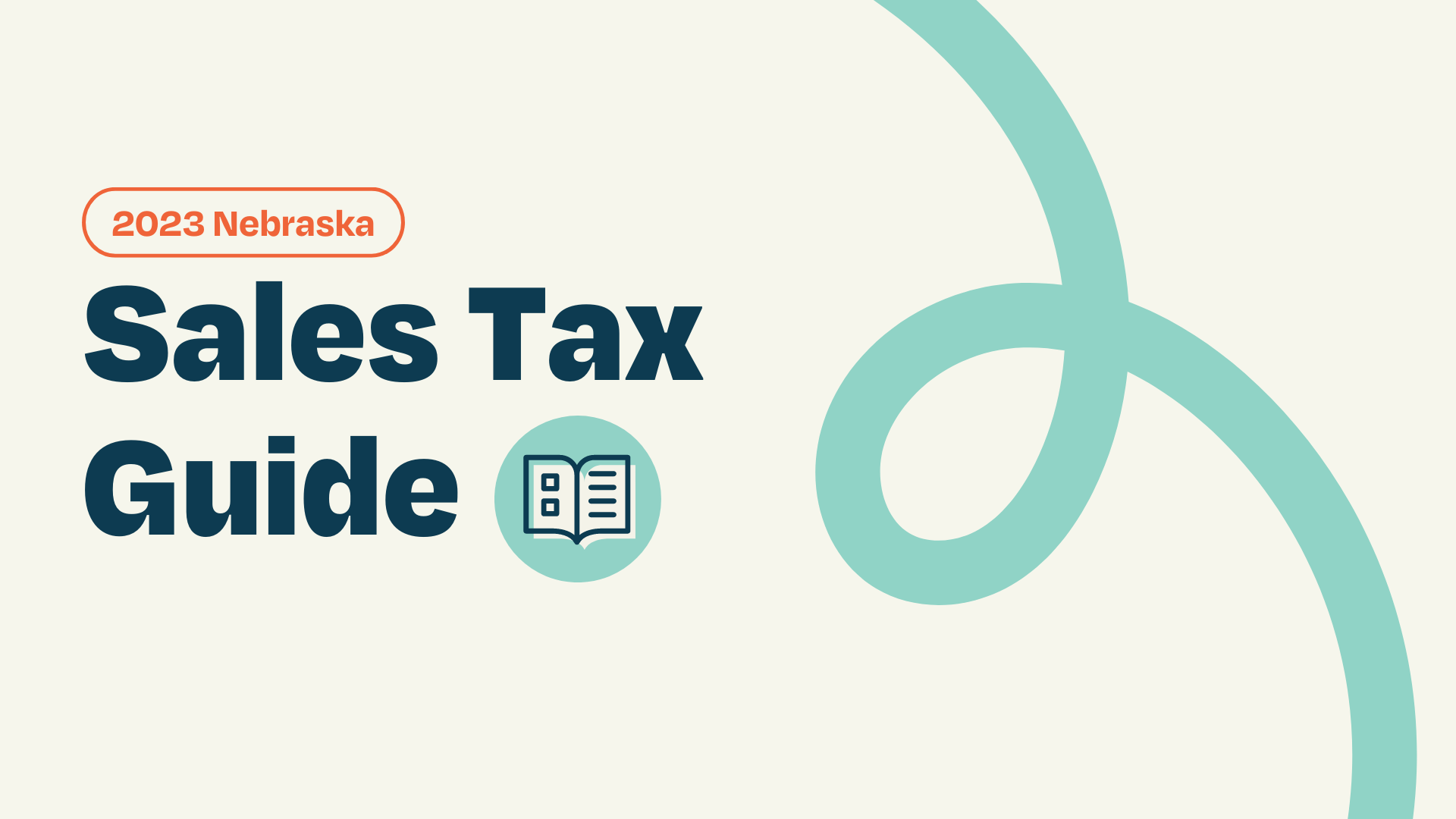Massachusetts 2023 Sales Tax Guide
Massachusetts Sales Tax in a Word Ahoy, fellow small business owners! Welcome aboard the S.S. Sales Tax Adventure, where we're setting sail on a...

Welcome to the fabulous world of Kentucky sales tax, brought to you by your friendly neighborhood accounting experts at Accountingprose! We know sales tax can feel like a rollercoaster ride but don't worry, we're here to guide you every step of the way. By the end of this blog, you'll be navigating the Bluegrass State's sales tax landscape like a true tax-slinging rockstar.
In our 2023 Kentucky sales tax guide guide, we'll cover the essentials of Kentucky sales tax, making it an enjoyable and easily digestible experience for all you small business superheroes out there. We'll break down the nitty-gritty of tax rates, filing procedures, and exemptions, all while keeping things entertaining.
At Accountingprose, your success is our top priority, and we're here to support you at every twist and turn. So, let's saddle up, partners, and embark on this exciting Kentucky sales tax adventure together!
|
Table of Contents |
Navigating sales tax compliance in the Bluegrass State doesn't have to be a solo endeavor. Help is always within reach thanks to the dedicated team managing Kentucky sales tax. In this section, we'll introduce you to the key players and provide essential contact information to ensure you're well-equipped to tackle any sales tax challenges that come your way.
The Kentucky Department of Revenue (DOR) is the state agency responsible for administering and enforcing Kentucky sales tax laws and regulations. From registration and tax rate determination to filing and payment, the DOR is your go-to resource for all things related to sales tax in Kentucky.
If you have questions or need assistance, don't hesitate to reach out to the Kentucky Department of Revenue.
Here's their contact information:
|
Phone |
Sales Tax Division (502) 564-5170 |
|
|
|
|
Website |
|
|
Mailing Address |
Kentucky Department of Revenue Sales and Use Tax P.O. Box 181, Station 67 Frankfort, KY 40602-0181
|
In addition to the state-level sales tax, certain local jurisdictions in Kentucky may impose their own sales taxes. Make sure to familiarize yourself with any local taxes that may apply to your specific area. The Kentucky DOR website provides a local tax rate lookup tool to help you determine the appropriate rates for your location.
And there you have it! With the Kentucky Department of Revenue and local tax jurisdictions by your side, you can confidently navigate sales tax compliance in the Bluegrass State. As always, if you need further assistance or have any questions, the friendly team at Accountingprose is here to help.
Happy sales tax filing!
Sales tax nexus is a crucial concept for small business owners to understand, as it determines whether your business is required to collect and remit sales tax in Kentucky. But what exactly is nexus, and how do you know if you have it?
Fear not, intrepid entrepreneur! In this section, we'll break down the various forms of sales tax nexus in Kentucky and help you determine if your business has established a taxable connection with the Bluegrass State.
Sales tax nexus is established when a business has a significant presence or connection to a state, which then requires the business to collect and remit sales tax on transactions within that state. In the world of Kentucky sales tax, there are several ways your business can establish nexus, including physical, economic, affiliate, click-through, and marketplace nexus. Let's explore each of these types in more detail!
Physical nexus is established when your business has a tangible presence within Kentucky, such as:
Maintaining an office, warehouse, or other physical location in the state
Having employees, agents, or representatives based in Kentucky
Storing inventory or goods at a fulfillment center in the state
Attending trade shows, conferences, or other events in Kentucky
If any of these criteria apply to your business, you likely have physical nexus in Kentucky and are required to collect and remit sales tax on transactions within the state.
Economic nexus comes into play when your business reaches a certain level of sales or transactions within Kentucky, even if you have no physical presence in the state. As of October 1, 2018, Kentucky established economic nexus for remote sellers who meet the following criteria:
Gross sales exceeding $100,000, or
200 or more separate transactions within the state during the current or previous calendar year
If your business meets either of these thresholds, you'll need to collect and remit sales tax in Kentucky due to economic nexus.
Affiliate nexus is established when your business has a relationship with another entity in Kentucky that helps promote or facilitate sales within the state. Common affiliate relationships include parent and subsidiary companies, shared ownership, or shared management. If your business has affiliate relationships with Kentucky-based entities, you may be required to collect and remit sales tax in the state.
Click-through nexus occurs when your business has an agreement with a Kentucky-based entity (such as an affiliate marketer or referral partner) that refers customers to your business through a website link or other online method. Kentucky enforces click-through nexus if your business has:
Gross sales of more than $10,000 from referrals by Kentucky-based affiliates over the preceding 12 months, and
Total gross sales in Kentucky exceeding $100,000 during the preceding calendar year
If your business meets these criteria, you'll need to collect and remit sales tax in Kentucky due to click-through nexus.
Marketplace nexus applies to marketplace facilitators (such as Amazon, eBay, or Etsy) who facilitate sales on behalf of third-party sellers. Under Kentucky law, marketplace facilitators are required to collect and remit sales tax on behalf of their third-party sellers when they meet the economic nexus thresholds mentioned earlier ($100,000 in sales or 200 transactions).
In conclusion, understanding and identifying nexus in Kentucky is a crucial step in ensuring your business remains sales tax compliant. If you're unsure whether your business has nexus in Kentucky, consider consulting with a tax professional or reaching out to the friendly folks at Accountingprose for expert advice and guidance.
Once you've determined your business has nexus in Kentucky, the next step is to register for a sales tax license. But how exactly do you go about registering, and what are the associated costs and requirements? In this section, we'll walk you through the process of registering for a Kentucky sales tax license and answer some of the most common questions related to sales tax registration in the Bluegrass State.
To register for a Kentucky sales tax license, you'll need to complete an online application through the Kentucky Department of Revenue's One Stop Business Portal. This portal is designed to streamline the registration process and provide a one-stop-shop for businesses to register with the necessary state agencies, including the Department of Revenue.
During the registration process, you'll be asked to provide information about your business, including:
Business name and address
Federal Tax ID Number (also known as an Employer Identification Number or EIN)
Description of the products or services you sell
Estimated monthly sales tax liability
Start date for collecting Kentucky sales tax
Once you've submitted your application, the Kentucky Department of Revenue will review your information and, if approved, issue you a sales tax license. This license must be prominently displayed at your place of business and renewed periodically, as required by Kentucky law.
Good news! There is no fee to register for a Kentucky sales tax license. However, it's important to note that there may be additional licensing fees or requirements associated with your specific business activities, so be sure to review all applicable rules and regulations during the registration process.
Yes, you will need a Federal Tax ID Number (also known as an Employer Identification Number or EIN) to register for a Kentucky sales tax license. This number is issued by the Internal Revenue Service (IRS) and serves as a unique identifier for your business. If you don't already have an EIN, you can apply for one online through the IRS website.
In addition to registering for a sales tax license with the Kentucky Department of Revenue, you may also need to register with other state agencies, depending on the nature of your business. Some common agencies businesses may need to register with include:
Kentucky Secretary of State: If your business is a corporation, limited liability company (LLC), or other formal business entity, you'll need to register with the Kentucky Secretary of State.
Kentucky Department of Workers' Claims: If your business has employees, you may need to register with the Kentucky Department of Workers' Claims for workers' compensation insurance.
Kentucky Division of Unemployment Insurance: Businesses with employees may also need to register with the Kentucky Division of Unemployment Insurance.
That's it! You're now well-equipped to register for a Kentucky sales tax license and take the next step in your sales tax compliance journey. As always, if you have any questions or need assistance with the registration process, don't hesitate to reach out to the friendly team at Accountingprose. We're here to help you succeed in the Bluegrass State!
After registering for a Kentucky sales tax license, the next step is understanding how to properly collect sales tax from your customers. In this section, we'll cover the basics of collecting sales tax in the Bluegrass State, including whether Kentucky is an origin or destination-based sales tax state, what sales are subject to tax, and how to handle exempt sales.
Kentucky is a destination-based sales tax state, which means that sales tax is determined by the location where the buyer receives the goods or services. For businesses with a physical presence in Kentucky, you'll collect sales tax based on the rate at your customer's location. For remote sellers, you'll need to collect sales tax based on the rate at the location where the product is delivered or where the service is performed.
In Kentucky, sales tax generally applies to the retail sale of tangible personal property and certain services.
Some common examples of taxable sales include:
Furniture, appliances, and electronics
Clothing and accessories
Computers, software, and digital goods
Restaurant meals and prepared food
Admission to events and activities
It's important to note that Kentucky also applies sales tax to shipping and handling charges when they are part of a taxable sale.
Yes, Software as a Service (SaaS) is considered taxable in Kentucky. The state treats SaaS as a sale of tangible personal property, and sales tax applies to the full sales price, including any charges for setup, customization, or other services associated with the software.
While many transactions are subject to sales tax in Kentucky, there are several exemptions that may apply to your business.
Some common exemptions include:
Sales of groceries and prescription drugs
Sales of certain machinery and equipment used in manufacturing
Sales to nonprofit organizations and government entities
Sales of educational materials and services
To be eligible for a Kentucky sales tax exemption, the buyer must be a qualifying organization or individual, such as:
Nonprofit organizations and government entities
Farmers purchasing certain agricultural supplies and equipment
Manufacturers purchasing machinery and equipment for use in production
If you have a customer who is exempt from sales tax in Kentucky, you'll need to obtain a valid exemption certificate from them.
This certificate should include:
The buyer's name and address
The buyer's sales tax identification number or exemption number
A description of the items or services being purchased
A statement indicating the reason for the exemption
The buyer's signature and date
You should retain a copy of the exemption certificate in your records for at least four years in case of an audit.
If you lose a Kentucky sales tax exemption certificate, you should request a replacement from your customer. If you're unable to obtain a valid exemption certificate, you may be held liable for any uncollected sales tax on the transaction.
In summary, understanding how to collect sales tax in Kentucky is an essential part of doing business in the state. By familiarizing yourself with the applicable rules and regulations, you can help ensure that your business remains compliant and avoids any potential penalties. As always, if you need assistance navigating the world of Kentucky sales tax, don't hesitate to reach out to the friendly team at Accountingprose!
Now that you're collecting sales tax in Kentucky, it's time to learn about the process of filing and paying those taxes to the state. In this section, we'll cover important topics like when to file and pay your sales tax, what to do if a filing date falls on a weekend or holiday, how to file a Kentucky sales tax return, and potential penalties for failing to file or pay on time.
The frequency with which you must file and pay sales tax in Kentucky will depend on your business's tax liability. The Kentucky Department of Revenue establishes filing frequency based on your average monthly tax liability. Here's a breakdown of the filing frequencies:
Monthly filing: If your average monthly tax liability is more than $1,200, you'll be required to file and pay sales tax on a monthly basis. Monthly returns are due by the 20th of the month following the reporting period.
Quarterly filing: If your average monthly tax liability is between $100 and $1,200, you'll file and pay sales tax on a quarterly basis. Quarterly returns are due by the 20th of the month following the end of the quarter.
Annual filing: If your average monthly tax liability is less than $100, you'll file and pay sales tax on an annual basis. Annual returns are due by January 20th of the following year.
If a Kentucky sales tax filing date falls on a weekend or holiday, your return and payment will be due on the next business day. To avoid any potential late penalties, it's a good idea to submit your return and payment ahead of time when a due date falls close to a weekend or holiday.
Filing a Kentucky sales tax return is an essential part of managing your sales tax obligations. To simplify the process and ensure you stay compliant, follow these detailed steps:
Gather your records: Before you begin, gather all your sales records for the reporting period. This includes your total sales, taxable sales, and any exempt sales. You should also have information on the tax you collected from customers and any deductions or credits you may be eligible for.
Determine the appropriate form: Depending on your business's sales tax liability, you'll need to complete either the Sales and Use Tax Return (Form 51A102) or the Consumer's Use Tax Return (Form 51A113). Be sure to select the form that corresponds with your business type and filing frequency. (Need a refresher on use tax? Check out our sales tax vs use tax blog here.)
Register for online filing (optional): If you prefer to file your return electronically, you'll need to register for an account with the Kentucky Department of Revenue's E-File website. This site allows you to file your return, make payments, and view your account history. Electronic filing can save time and reduce the risk of errors, as the system will automatically calculate your tax due and any applicable penalties or interest.
Complete the form: When filling out your sales tax return, you'll need to provide detailed information about your sales and tax collected during the reporting period. This includes:
Your business's name, address, and sales tax identification number
The reporting period and due date
Total gross sales, including both taxable and exempt sales
Taxable sales, broken down by the appropriate tax rates for your jurisdiction
Any applicable deductions, such as sales to tax-exempt organizations or sales of exempt items
The total tax collected from customers
Any applicable credits, such as prepayments or overpayments from previous periods
The net tax due, calculated by subtracting deductions and credits from the total tax collected
Submit your return: Once you've completed your sales tax return, you can submit it electronically through the Kentucky E-File website or mail a paper return to the address provided on the form. Be sure to double-check your information for accuracy and completeness before submitting your return to avoid potential penalties or delays.
Make your payment: Along with submitting your sales tax return, you'll need to pay the tax due for the reporting period. You can make your payment electronically through the E-File website or by mailing a check or money order with your paper return. If paying by mail, be sure to include your sales tax identification number and the reporting period on your payment.
Keep records: It's important to retain copies of your filed sales tax returns and supporting documentation for at least four years. This will help protect your business in case of an audit and ensure you have accurate records for future reference.
By following these detailed steps, you can confidently file your Kentucky sales tax return and maintain compliance with state laws. And remember, if you need assistance with sales tax compliance in Kentucky, the Accountingprose team is always ready to help!
There are several penalties that can be assessed for sales tax filing in Kentucky if you fail to file on time, don't file at all, or don't pay the sales tax due.
Here's a breakdown of the various penalties:
A penalty of 2% of the tax due for each 30 days or fraction thereof that the return is late, up to a maximum of 20%.
A penalty of 10% of the unpaid tax if the payment is no made by the due date.
Interest will be charged on the unpaid tax from the due date until the tax is paid in full. The interest rate is set annually by the Kentucky Department of Revenue.
Kentucky offers several sales tax incentives for businesses, including:
Enterprise Zone Program: This program provides sales tax exemptions on building materials, machinery, and equipment used in designated enterprise zones.
Kentucky Industrial Revitalization Act: This program offers sales tax rebates on the cost of rehabilitating or expanding manufacturing facilities that have been in operation for at least 15 years.
Kentucky Investment Fund Act: This program provides tax credits to investors in qualifying small businesses located in Kentucky.
To take advantage of these incentives, you'll need to meet the specific eligibility requirements and apply through the appropriate state agency.
In conclusion, understanding the process of filing and paying sales taxes in Kentucky is crucial for maintaining compliance with state laws and avoiding penalties. By staying informed and following best practices, you can ensure your business enjoys a smooth sales tax filing experience. And remember, if you need assistance with sales tax compliance in Kentucky, the experts at Accountingprose are always here to help!
Filing sales tax returns can be a complex process, but with the right strategies in place, you can avoid common pitfalls.
Here are five top tips to help you steer clear of mistakes when filing your Kentucky sales tax returns:
Maintain accurate and up-to-date records of your sales transactions, including taxable and exempt sales, and the sales tax collected. Proper record-keeping will make it easier to complete your sales tax return accurately and on time. Consider using accounting software or working with a professional to help you stay organized.
Be aware of your assigned filing frequency (monthly, quarterly, or annually) based on your average monthly tax liability. Knowing your filing frequency will help you avoid accidentally missing a due date and incurring penalties for late filing or payment.
Sales tax rates can change, and local rates may vary between jurisdictions within Kentucky. Make sure to stay up-to-date with the latest tax rates applicable to your business and double-check your calculations when completing your return. This will help ensure you're collecting and remitting the correct amount of sales tax.
One of the most common mistakes businesses make is missing filing deadlines. Mark your calendar with your sales tax return due dates and set reminders to ensure you file and pay on time. If you're unsure of your due dates, you can find them on the Kentucky Department of Revenue website or contact them for assistance.
Before submitting your sales tax return, take the time to carefully review your form for accuracy and completeness. Check that you've entered all the required information, including your business's name, address, and sales tax identification number, as well as the reporting period and due date. Double-check your calculations for total sales, taxable sales, tax collected, deductions, and credits. Catching any errors or omissions before you submit your return can help you avoid penalties and interest charges.
By following these tips and staying diligent in your sales tax compliance efforts, you can avoid common mistakes and ensure a smooth filing experience for your Kentucky sales tax returns. And remember, if you need assistance with sales tax compliance, the team at Accountingprose is always here to help!
And there you have it, folks! We've reached the end of our thrilling journey through the enchanting world of Kentucky sales tax. By now, you should be feeling like a sales tax maestro, ready to tackle the Bluegrass State's tax landscape with confidence and finesse.
We hope this guide has been your trusty sidekick, making the complex world of taxes feel like a walk in the park (or perhaps a gallop through the rolling hills of Kentucky). Remember, at Accountingprose, we're always here to lend a helping hand, and our commitment to your success is unwavering.
So, whether you're a small business owner, an entrepreneur, or a tax enthusiast, we hope this guide has been both entertaining and valuable. Keep our Kentucky Sales Tax Guide handy for future reference, and don't hesitate to reach out to us for any assistance. After all, we're in this together, and there's nothing we love more than seeing our clients succeed.
From all of us at Accountingprose, happy tax navigating, and may your business continue to thrive in the beautiful Bluegrass State!
|
Ready to work with a Kentucky sales tax expert? We've love to work with you! |
|
Alaska Sales Tax Guide (N/A) |
||||
|
Montana Sales Tax Guide (NA) |
||||
|
Oregon Sales Tax Guide (N/A) |
||||
|
Delaware Sales Tax Guide (N/A) |
||||
|
New Hampshire Sales Tax Guide (NA) |
||||
And don't forget to check out our blog about Economic Nexus, which serves as an invaluable resource for businesses who have sales that are subject to sales tax.
This blog is for informational purposes only and the information is accurate as of 2023-06-19. If you want legal advice on sales tax law for your business, please contact a State and Local Tax (SALT) professional. Keep in mind that sales tax regulations and laws are subject to change at any time. While we strive to keep our blog current, this blog possibly may be out of date by the time you review it.

Massachusetts Sales Tax in a Word Ahoy, fellow small business owners! Welcome aboard the S.S. Sales Tax Adventure, where we're setting sail on a...

Ohio Sales Tax in a Word Embarking on the entrepreneurial journey in Ohio comes with a multitude of responsibilities, and understanding sales...

1 min read
Nebraska Sales Tax in a Word Welcome to the world of sales tax in Nebraska! As a small business owner, you've likely discovered that...